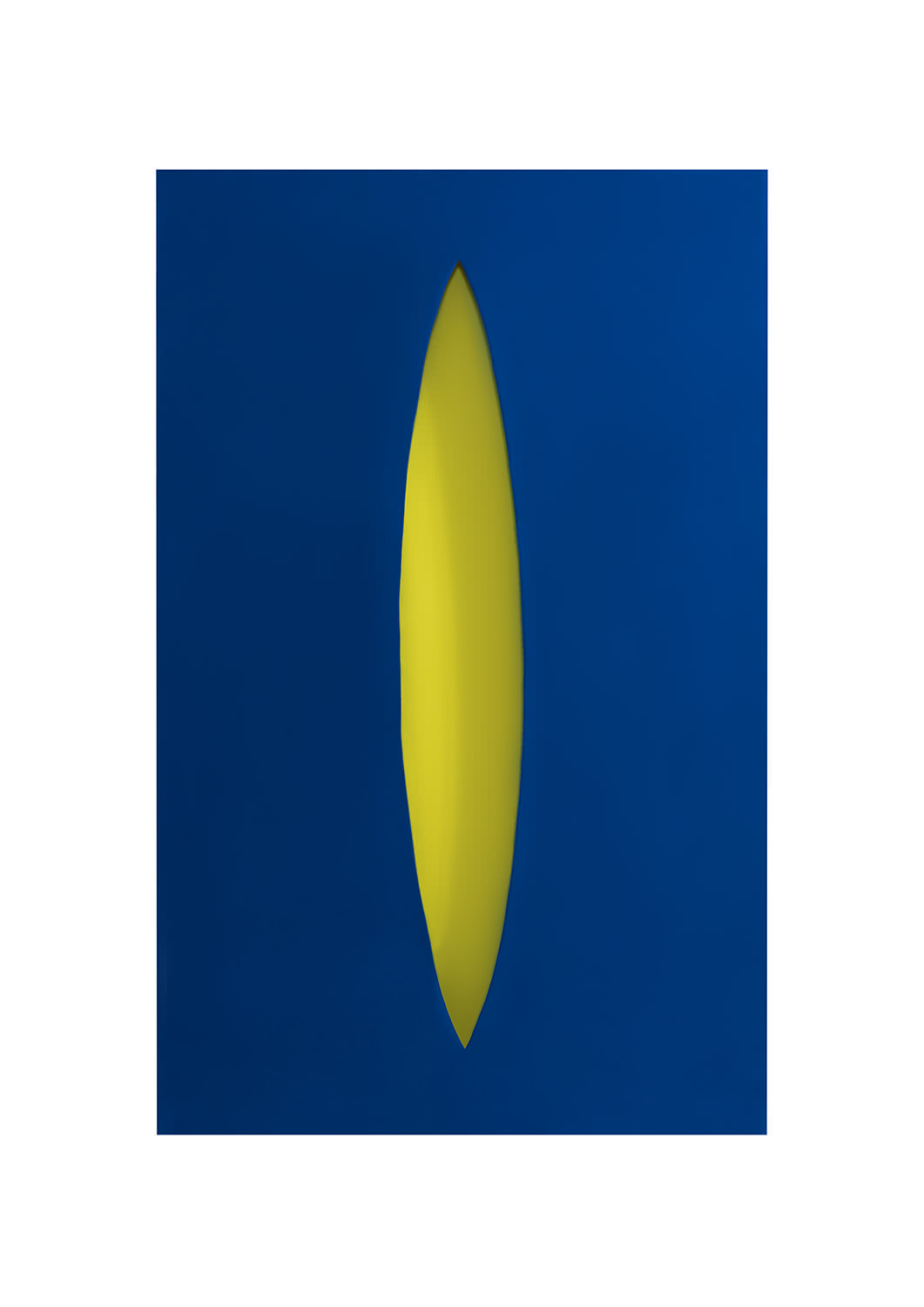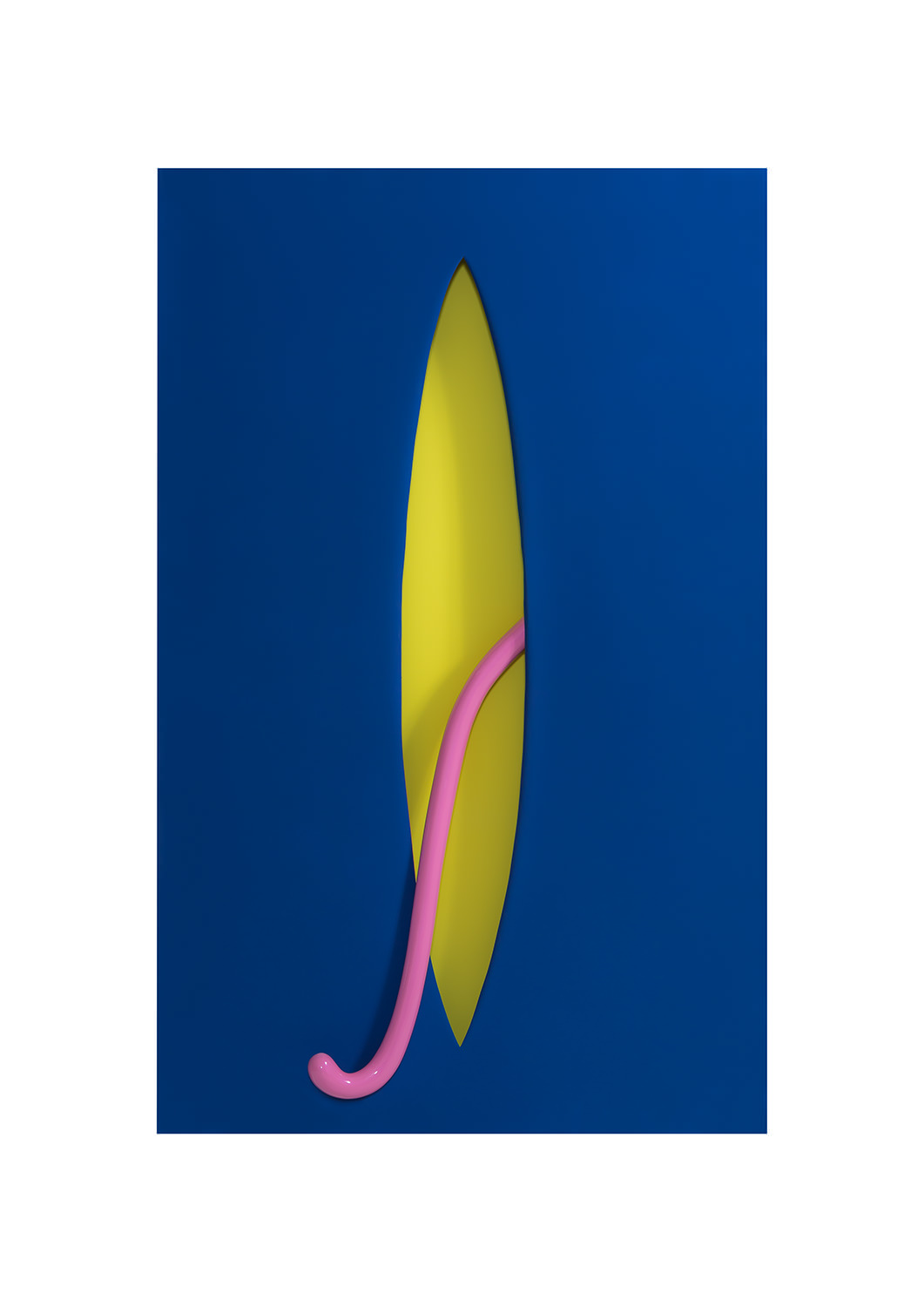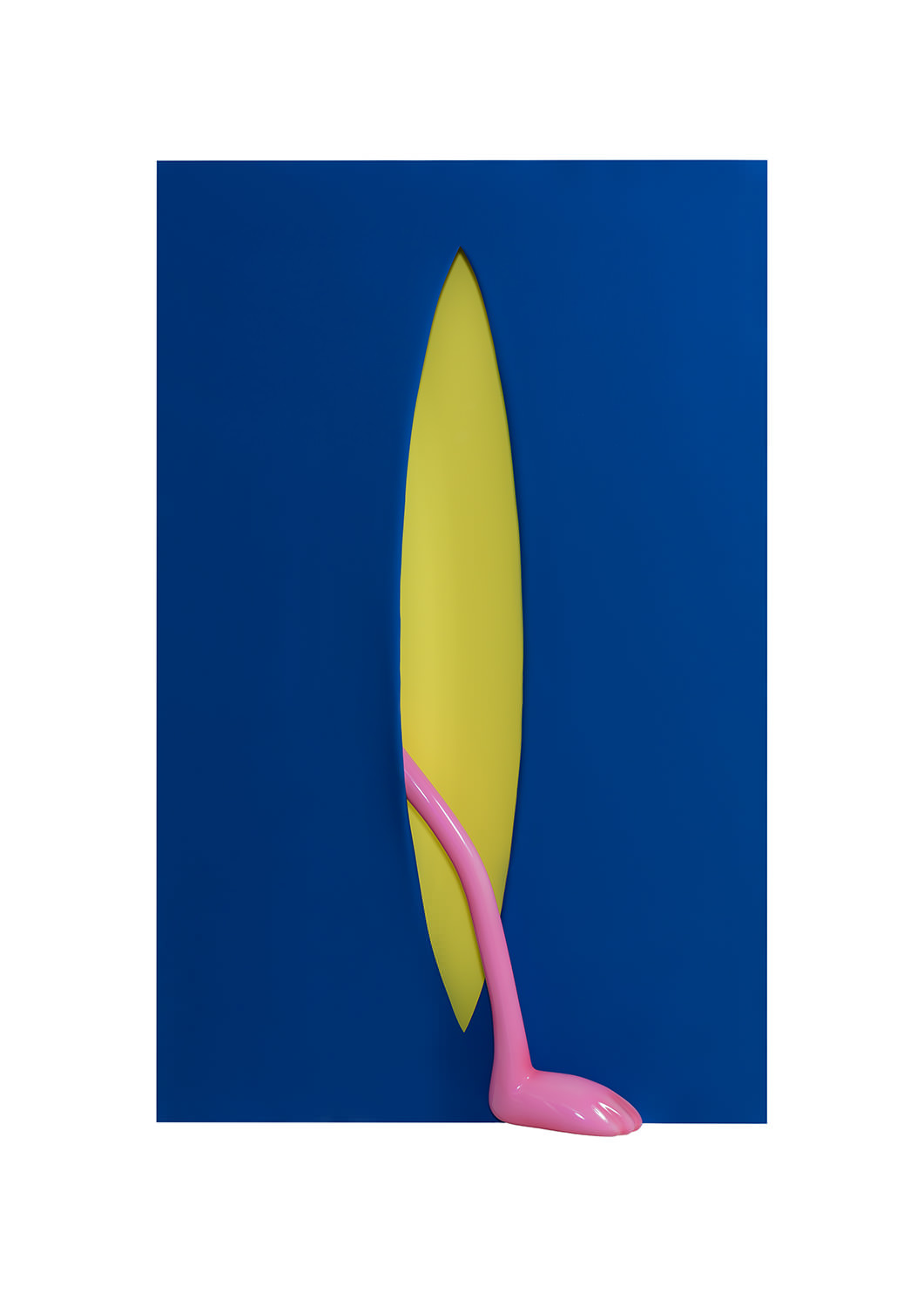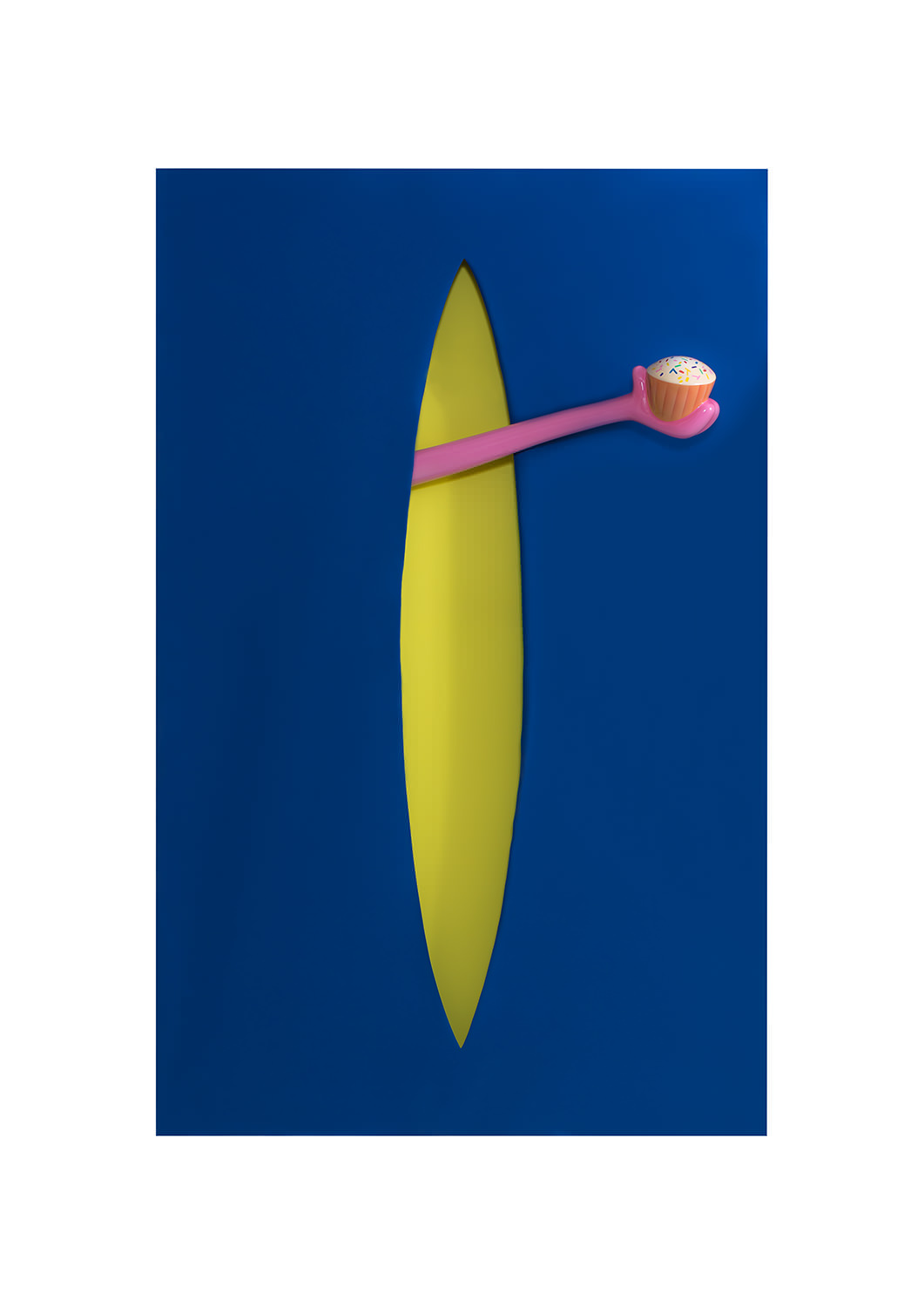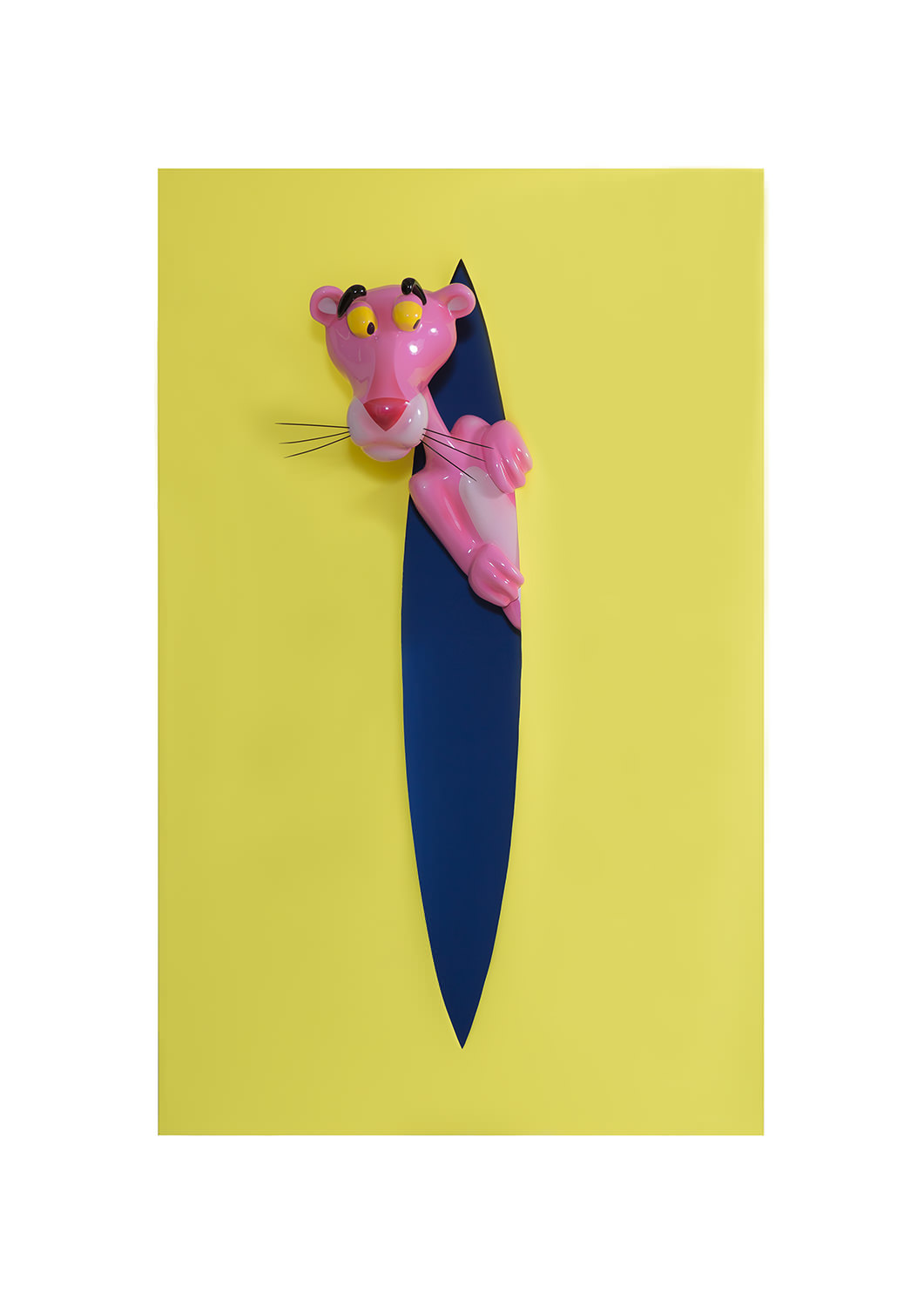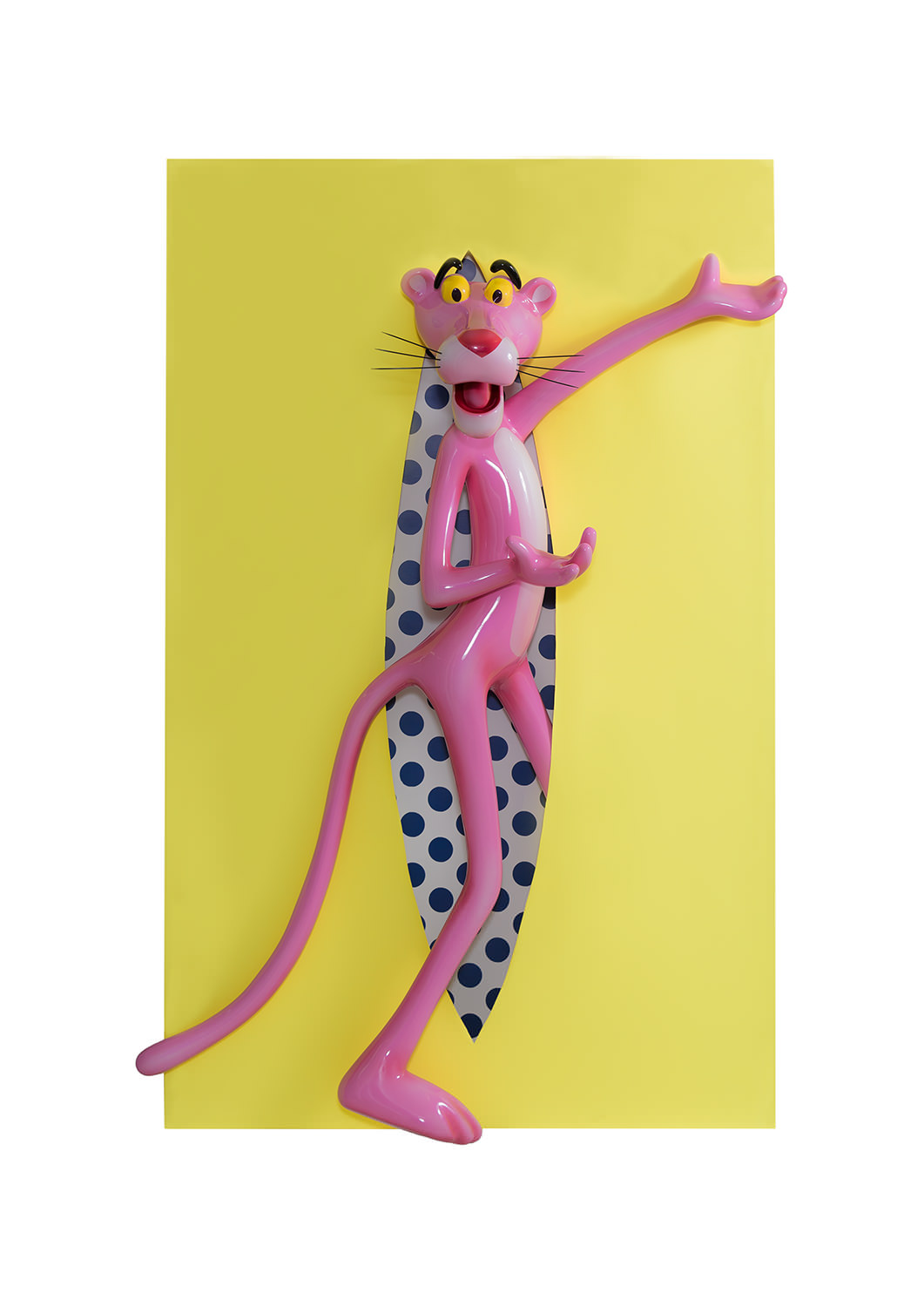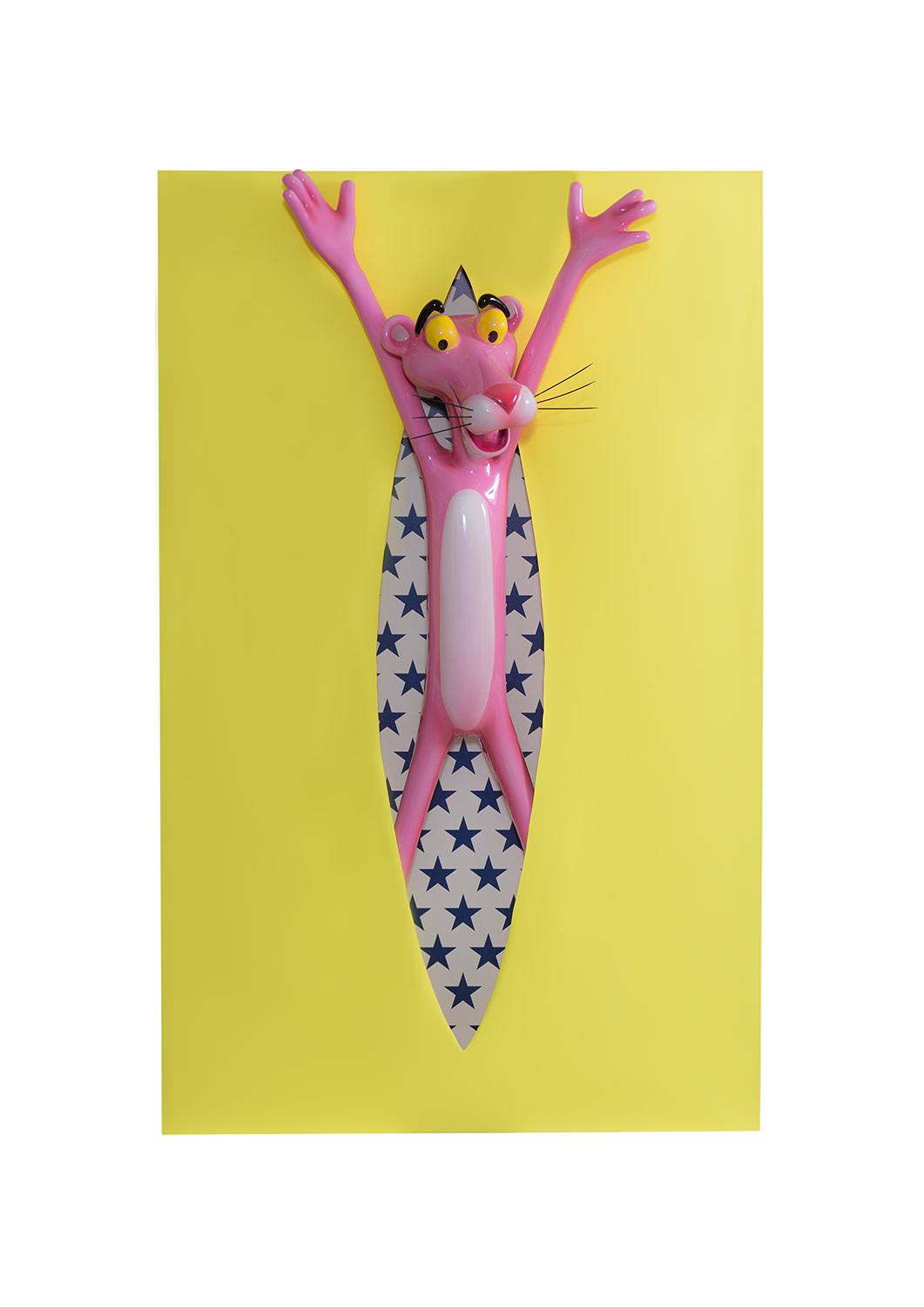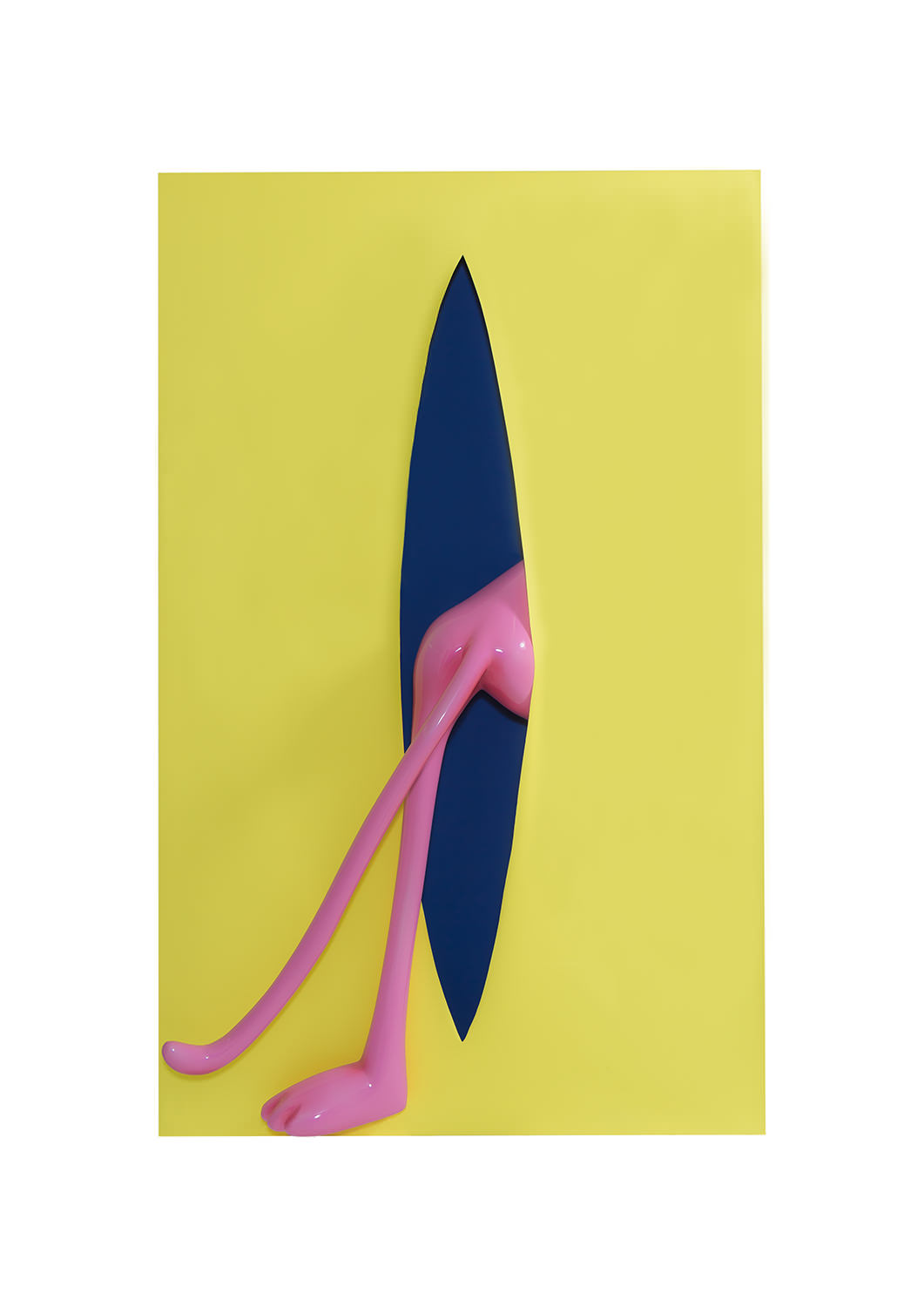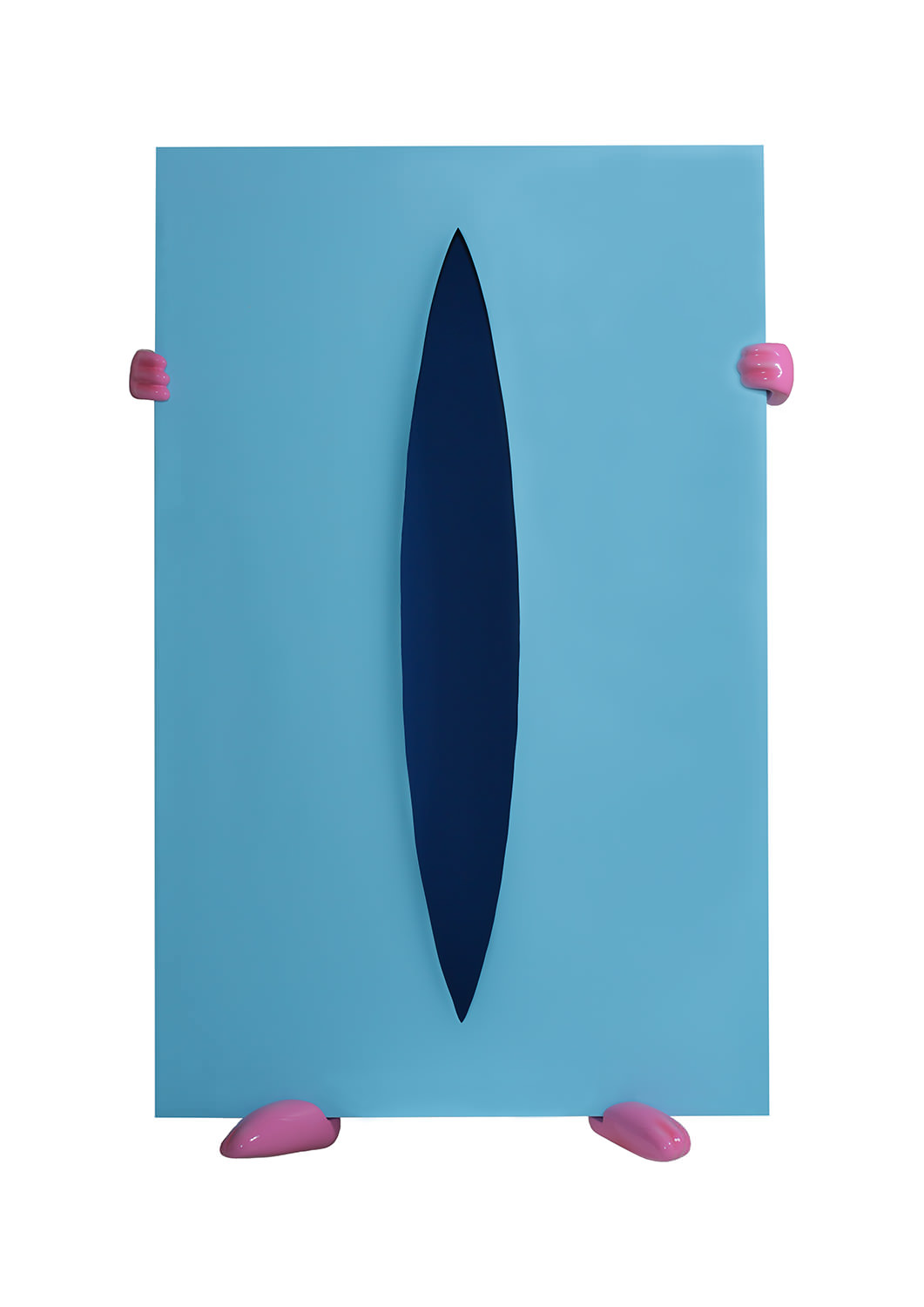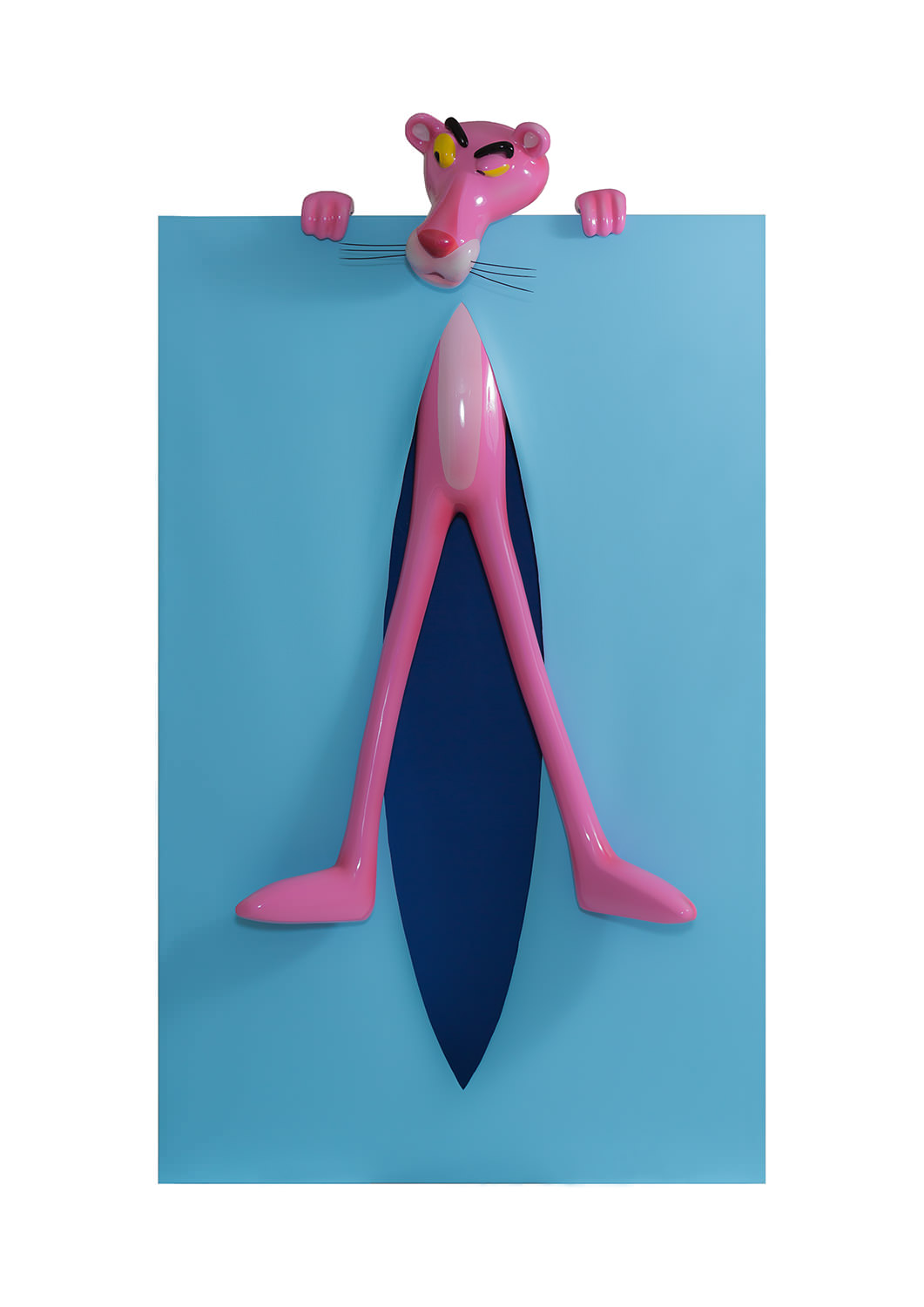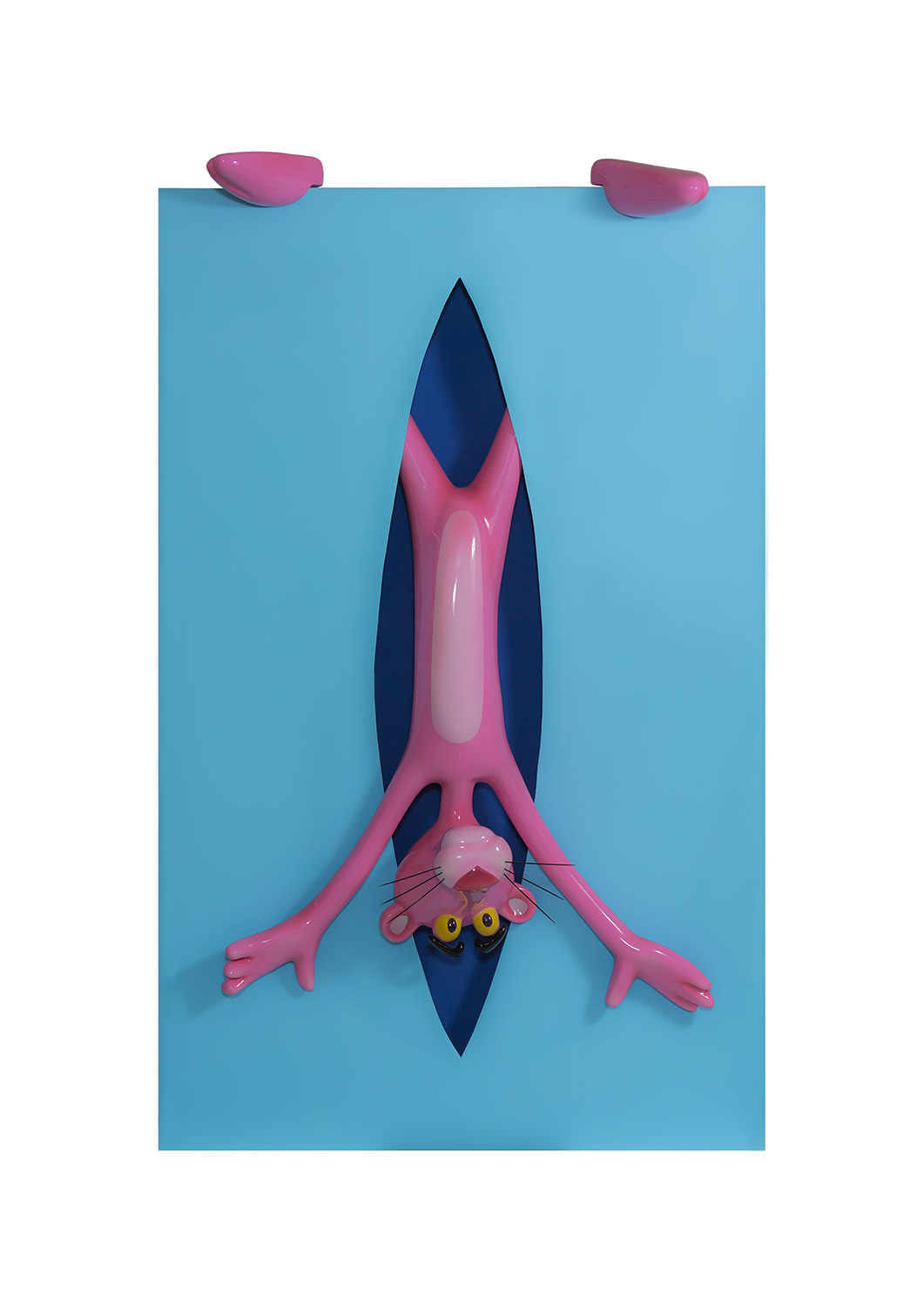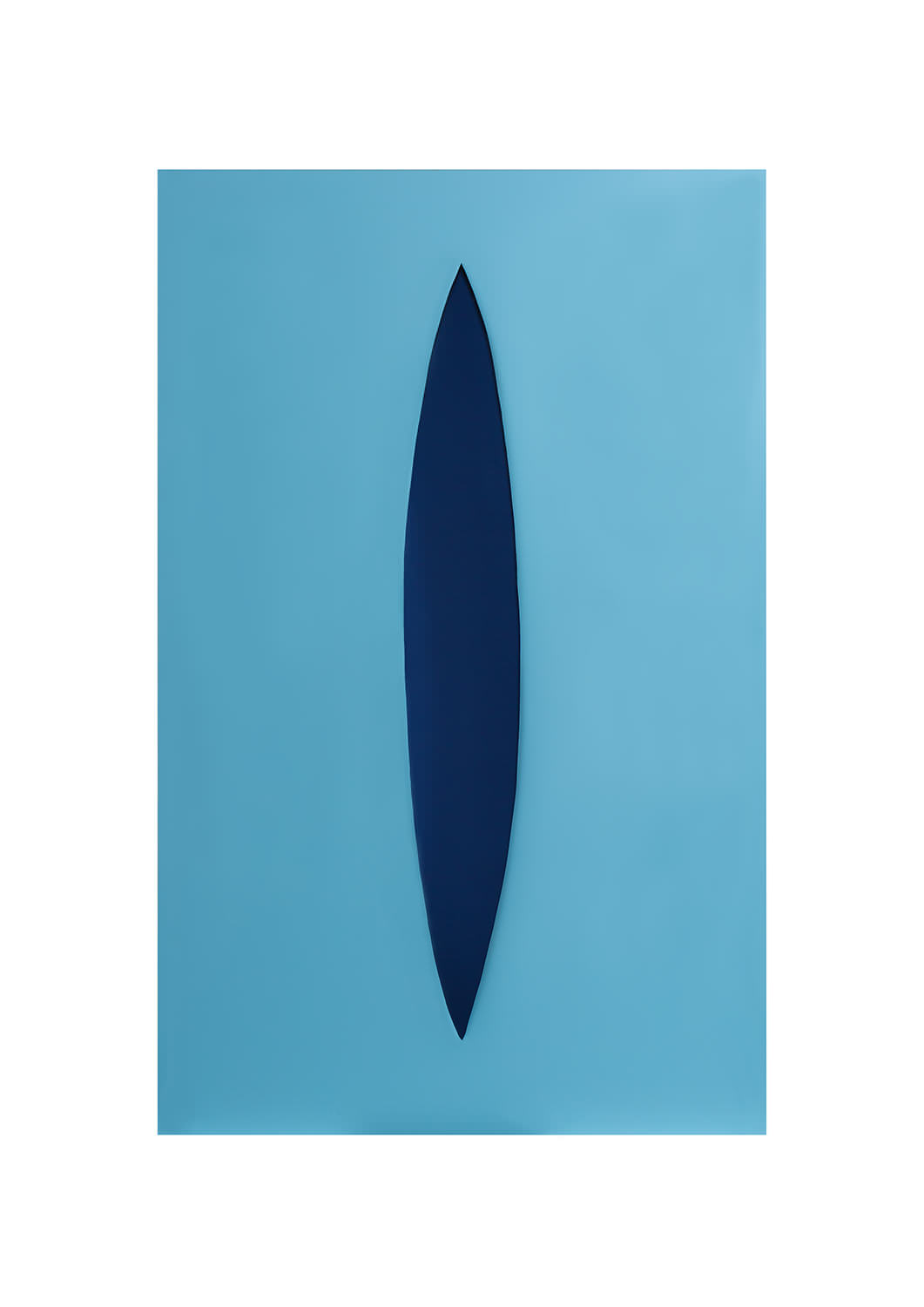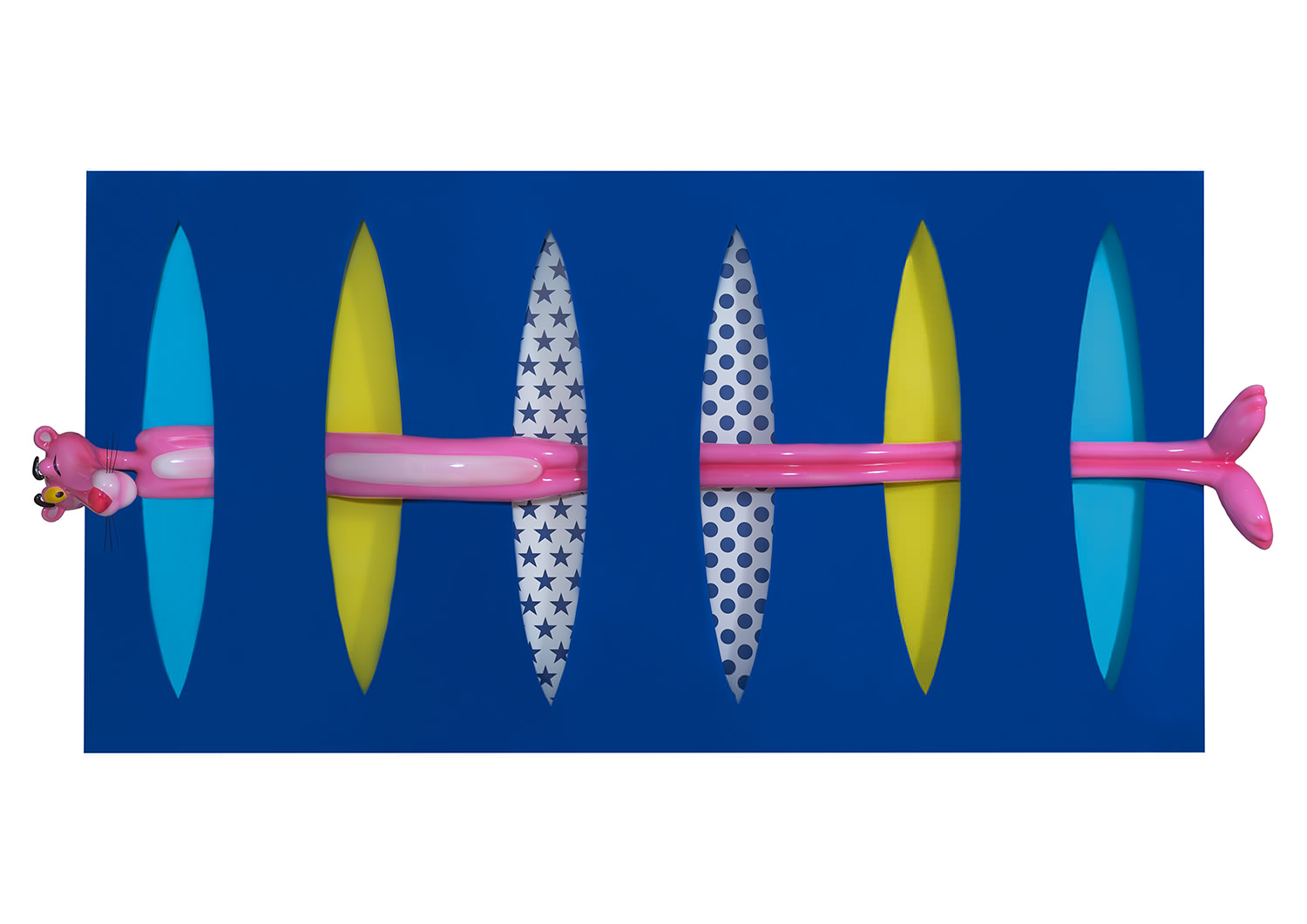At the heart of this compelling series is the interplay between the masculine and feminine — as both universal and individual energies which organise, determine and create our existence. The familiar is met in the form of the humorous male Pink Panther, a vehicle of association which crosses numerous media and contexts. A sense of mystery, of the magical, of something hidden within another form, is implied by this reference, obvious only upon close inspection. Herein Lomaka builds on her sources of inspiration and transforms them in order to provoke and move the viewer to different perceptions of what we see and what is implied by that which we see. She conveys her ability to combine both the readable aspects of mass media culture, in homage to Jeff Koons’ 1988 Pink Panther, with the analogous and abstract.
The void in the centre of each sculpture, symbolic of the feminine, cuts through to the background revealing a deep colour of an inner dimension. The space created by the void is populated by suggestion, recalling Anish Kapoor’s void, and is juxtaposed by the apparent flat rectangularity of the sculpture surrounding it. Here, the mysterious properties of space created by form are explored, loosely alluding to the abstract expressionism of Lucio Fontana. By removing mass, space is created, yet this is paradoxical, for in the presence of space, form can be manifested. The void becomes infinity with its endless possibilities, manifestations and creations; an aspect of the magical.
The presence of the void in each sculpture reaches back to ancient iconography where the oval, or mandorla, held the profound notion of a double vision. It was at once something seen directly, visibly, tangibly, as well as being indicative of a glory behind and beyond its form, beyond the vision of it. The role of the symbol was to bridge the seeming separateness between subject and object and when realised and internalised, had a transcendent and deep function. Yet it also becomes symbolic of the feminine, of sexuality, suggestive of the excitement and anticipation of pleasure and stepping out of mundane reality into different dimensions of experience.
The temptation of the symbolic void is communicated through the playfulness of the panther. As he moves his way through, in and around the void, he tells of the inevitability of its magnetism and the inescapable pull of its enchantment. The revelation of a tail or an arm spark an intriguing and curious path we want to follow. Some aspect of the panther always remains partly concealed and ever changing while the void remains permanent, reinforcing the primacy of infinity. The magical interaction between the masculine and the feminine as both forces of human sexuality and as universal polarities contained within unity, are reinforced in each sculpture, since panther and void never separate.
Each of the twelve sculptures are arranged into three groups of four, with a dominant colour on the rectangular shape. Dark blue, yellow and light blue differentiate each group and then appear in the interior of the void, firstly in block colours, becoming spots in Perfect Cut, stars in Love you to the Moon and Back, reverting back to two block colours thereafter. It is only when we reach the final and thirteenth installation, Infinity, that all of the colour and pattern variations come together with the Pink Panther interwoven through the entire form. A monumental installation over 3.5 metres long, Infinity is set above and beyond the other twelve sculptures, highlighting the significance of that which it points to.
Pink Magic is highly charged with the energy and vitality of movement with colour. Block colours and the painterly gloss of pink are a hail to pop art and to the work of Allen Jones. Vibrant and immediate, these colours awaken the senses and the body. Through their use, Lomaka continuously draws the viewer in so that the art is not only aesthetically appreciated but also viscerally felt, echoing the tangible male/female synergies. A response is called for in their obvious reference to popular culture whilst the non- dogmatic forms, shapes and figures we see challenge current conventions and uses. It tells of a more esoteric nature of things; unlike transcendence which detaches, esoteric denotes something which is implicit and innate within the form itself.
And here the magical expectation of what may lie behind a work of art is suggested. Concrete assertions of convention, of mass consumer culture, of perceptions, are dismissed instead for that which is open- ended, giving the viewer the freedom to choose the reality they wish to see and experience. The ancient and concealed are met with post-modernity and in its Duchamp-like way, takes the familiar, every day, out of context and turns it into something else. There is a slant towards the illogical, a challenge to societal mindsets and of what we accept as reality. It is a trajectory which moves across different dimensions, through varying perceptions of the familiar in unfamiliar ways, through the general and particular.
Spiritual, philosophical and intimate matters that preside throughout our lives and govern our existence are communicated under the guise of humour, playfulness and vibrancy. Pink Magic pivots on the balance between raising questions and stirring curiosity through its intrigue, never settling for the completeness of definitive answers. It is an exploration of the universe, of consciousness, and of other dimensions that may exist. The universality of creation which is infinitesimal is held within the magical interaction of male and female polarities showing their inseparableness at the core of existence. Pink, denoting hope, optimism and tenderness, and magic, which can never be fully explained or pinned down, is a culmination of both the abstract and the concrete, epitomising the multiple layers inherent in creation, between the masculine and feminine, and enticing those same qualities to awaken in the observer.









